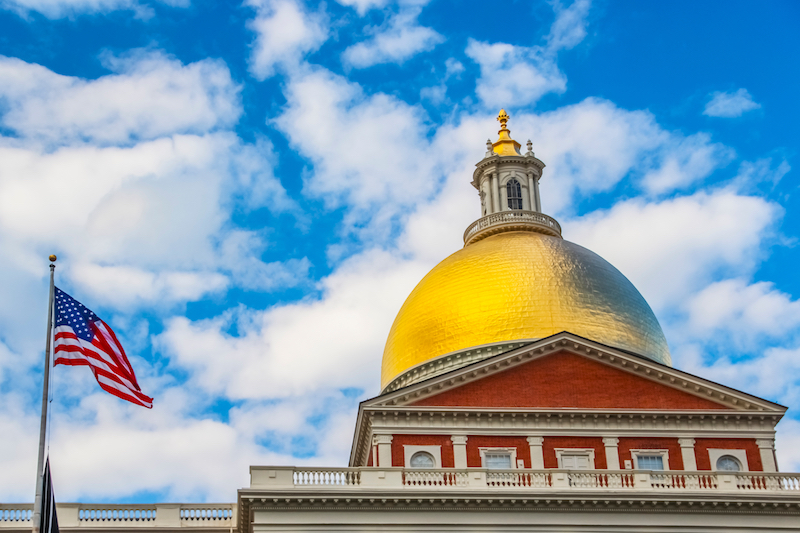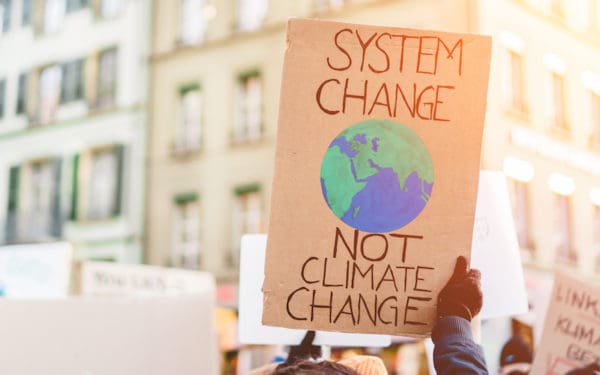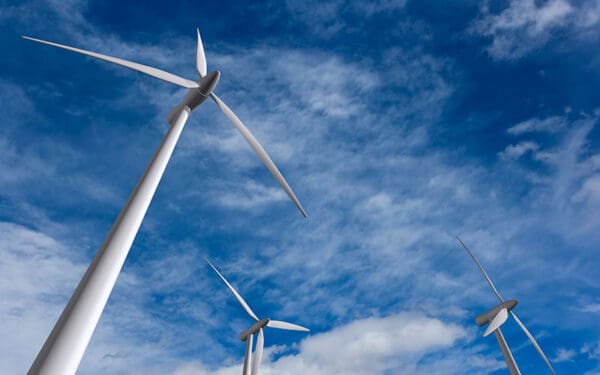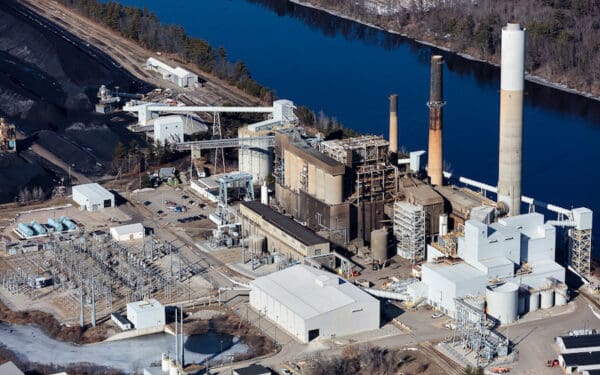
The Massachusetts Legislature missed their chance to lead on energy today. Photo Credit: Shutterstock.
This week, Massachusetts had a chance to make meaningful progress on clean energy. With a slew of bills in front of them, the legislature was poised to minimize electricity costs, bolster local job growth, and protect its people from the worst effects of climate change. Instead, our legislators made only half-hearted nods towards progress, falling far short of the urgent change that would help families and businesses throughout our state.
So while there are some gains, there are even more glaring omissions. The legislature could have led on clean energy and climate change but declined to do so. This lack of leadership on energy is both disappointing and perplexing.
Where the Legislature Punted Their Responsibilities
Last week we outlined what our legislators needed to do: Boost the amount of clean energy powering our homes and businesses, bolster solar power across the state, and create the path to achieving our mandated goals for cutting carbon pollution. But rather than seize the opportunity for leadership, our legislators passed a few weak bills and called it a day.
Let’s start with what wasn’t included in the final “An Act to Advance Clean Energy”:
- Boosting the Renewable Portfolio Standard, which mandates that utilities buy a certain amount of clean energy, to 3 percent per year. This would have brought more jobs and investment dollars to Massachusetts.
- Lifting the caps on solar net metering, and restoring the incentives for community shared solar and low-income solar projects. This would have boosted our economy, as solar is one of the largest drivers of new jobs in Massachusetts. It also would have made solar power more accessible to everyone who wants it.
- Creating a roadmap to reach the carbon pollution goals mandated by our Global Warming Solutions Act. The legislature had the framework to set strong emissions limits for 2030 and 2040. This would have helped us meet our ultimate 2050 goal for reduced carbon pollution and helped protect families and businesses from the worst effects of climate change.
- Anything to do with transportation. A host of proposed electric car and truck bills could have moved the needle forward and helped us cut emissions from transportation. Instead, silence.
Some form of each of these was part of the Senate’s original, and more ambitious, clean energy bill, but vanished as House and Senate came together to find consensus. Instead of these strong steps forward, the final bill kicks the can down the road on issues that demand progress now.
Where the Legislature Gained a Few Yards
The session wasn’t a total loss, however. The Senate and the House did agree on a few small advances, though none of them go far enough:
- Temporarily boosting the Renewable Portfolio Standard. Our current 1 percent per year increase will become a 2 percent per year increase from 2020 through 2030, before dropping back to 1 percent. Increasing this will help boost local jobs and bolster our electricity grid with more clean energy.
- Authorizing 1,000 megawatt hours of energy storage be available by 2026, which will allow us to use stored energy instead of dirty power plants.
- Allowing up to 1,600 more megawatts of offshore wind power. If Massachusetts does invest in more offshore wind power, it will mean more local jobs as we build out a new industry.
- Expanding MassSave energy efficiency programs, which will help families and businesses save both energy and money, while providing a low-cost way to reduce carbon pollution.
- Quantifying how much dirty gas is leaking from pipelines in Massachusetts, so that we’re not paying for gas we’re not using.
Each of these is a good, if small, step towards transforming our economy to one built on clean energy sources. However, we need more sweeping changes with the potential to boost local jobs and help protect Massachusetts families and businesses from the worst effects of climate change.
Also included in this bill was a clean peak standard for utilities. The idea here is to require utilities to use renewable energy during those times when demand for electricity is highest to avoid relying on our most polluting power sources. But it hasn’t been well developed or studied. Plus, this bill allows dirty trash incineration to count as a clean resource despite its outsized impact on the environment and low-income communities.
Where the Legislature Needs to Go Next Session
Passing this bill was our legislature’s attempt to do as little as possible on clean energy and climate, without punting entirely. But we can’t afford to wait any longer.
Next session, we need our legislature to be more ambitious. They need to stop taking half-hearted measures and make environmental justice and equity a priority, not an afterthought.
Overall, it’s hard to cheer for these minor steps forward when the legislature has left so much on the table. Why did they exclude major, much-needed milestones? Why did they opt for progress on the renewable portfolio standard only to roll it back? Why did they neglect clean energy investments for our communities that need them most? Why did they fail to live up to their potential on clean energy and climate change?
While it’s good that the Massachusetts legislature took some small steps forward, we are not going to let them miss another opportunity to take major action on clean energy and climate next session.




